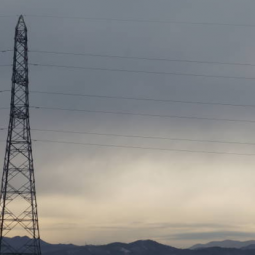Three decades ago the only essential things identified by researchers for mankind to survive were water, food, clothing, medicine, and shelter; not until humanity was introduced to the so-called “Internet”. After long years of research and extensive experimentation, mankind had perfected the science of telecommunications and connectivity, making the world smaller and smaller until it could be manipulated with just our fingers.
The invention of the Internet is considered one the most significant events throughout history. And as experienced, this phenomenon just came out from the open without any said launching or debut. All of a sudden humanity was caught needing the essentials of the Internet.
With the prevalence of the Internet, business sectors are now in their rat race to achieve supremacy in this industry. Companies were established and developed in order to provide the masses with this new online communication.
The pioneering companies were divided into two sectors; the cable Internet and the mobile broadband Internet. These types of Internet connections both offer excellent services which will be suited to the needs and preference of the users. Some companies even have both services because they realize that these services are needed not only by internet savvy individuals but also by the ordinary people who would like to be connected 24/7.
Let us look where these connections do best in terms of:
Price
A cabled Internet connection is much cheaper compared to mobile broadband. The price differs according to preferred internet speed. The slower the Internet speed, the cheaper the cost is. Mobile broadband on the other hand seems a little expensive because it requires more technology to transmit Internet signal while the users are mobile. The verdict on which internet connection wins in this category will be prized on the mobile broadband. It is because the usability of the cable internet connection is poor compared to the capability of the broadband to be mobile. The simplest explanation of this will be noticed by the cable Internet users who pay extra charges to connect to the Wifi zones.
Mobility
There is no argument with this category that mobile broadband wins. Unlike cable internet where connectivity will only be limited to a maximum of 100 meters provided by a WiFi router, mobile broadband can be utilized in any place provided that the network is available.
Security
In this case, cable Internet wins this category. As a stationary connection, a secured system is expected because users can be easily identified. Unlike with the mobile broadband where signals are transmitted through towers, cable internet users have full control over the security of the internet connection by screening identified users to their network. The only risk of having cable Internet is when users travel and need to connect to WiFi. Security will be vulnerable in this case because a public internet service is prone to viruses, spyware, and other forms of malware. Mobile broadband on the other hand can be safe anywhere at any given time.
In conclusion, mobile broadband wins the overall battle in terms of price, mobility, and security.
This article was submitted through TechGeec’s article submission form.
Jashon Wills is a professional online article writer who promotes even and truthful facts. He believes that cable Internet information may be a bit scattered, but this page consolidates much of the info if you choose to visit it.
